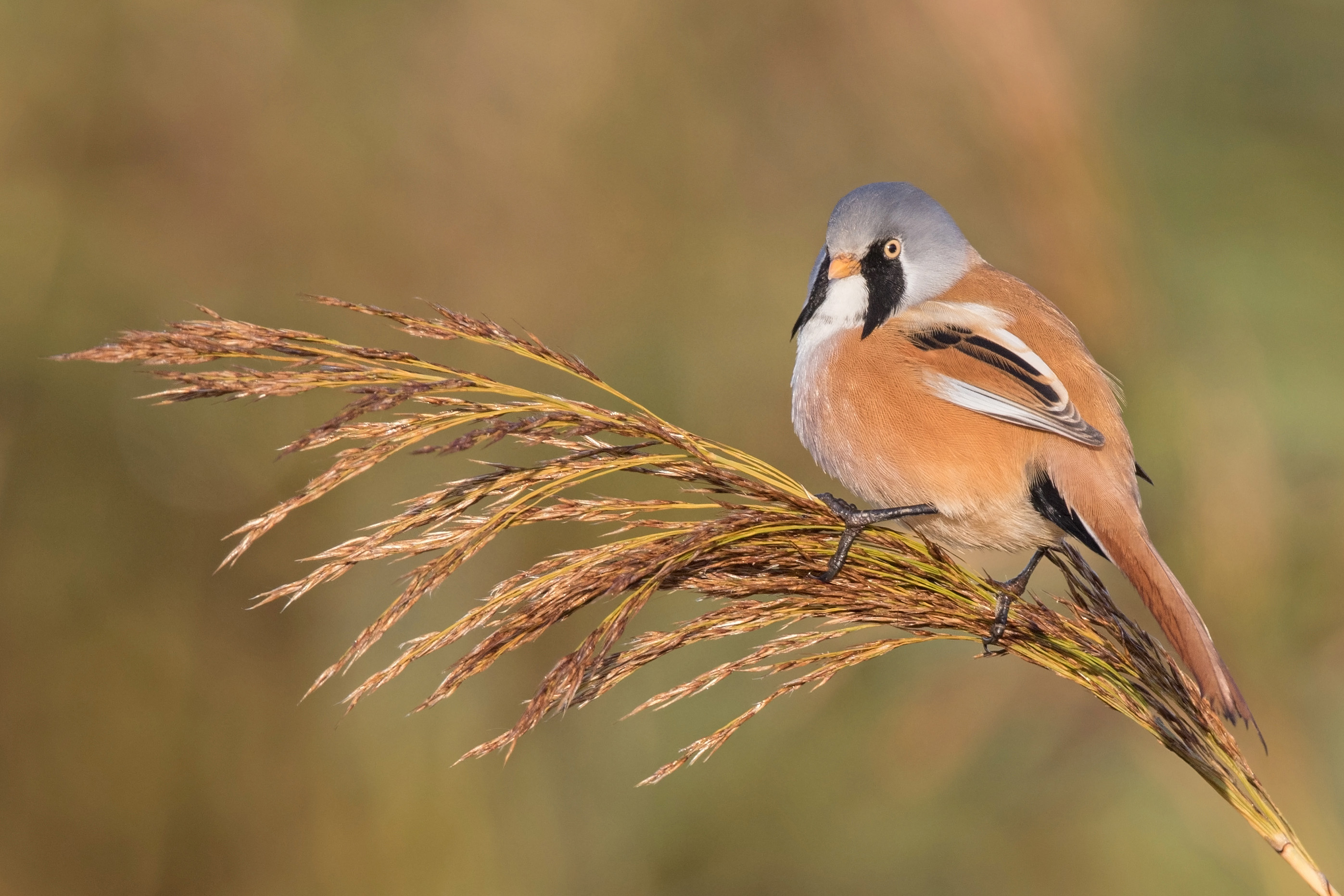Bearded Tits reach record high
Bearded Tit — one of Britain's rarest breeding birds — has spectacularly bounced back from a population crash to reach the highest numbers recorded in the UK, according to a recent survey.
The Rare Breeding Birds in the UK report, published by the Rare Breeding Birds Panel, revealed that the British Bearded Tit population increased from 618 pairs in 2013 to 772 pairs in 2014 — the highest number since monitoring began in 1995.
This new record is all the more remarkable given the population crash discovered by the 2011 survey. Bearded Tits are very sensitive to periods of hard winter weather and this can have a knock-on effect on their breeding success. A disastrously cold month in December 2010 decimated Britain's Bearded Tits, with just 360 pairs in 2011 representing a decline of nearly half.
Aided by a succession of mild winters, this is the third year in a row that numbers have increased and it is hoped that the work carried out to improve and create more habitat for Bearded Tits across RSPB nature reserves will allow the trend to continue.

2015 was a record year for breeding Bearded Tits across Britain (Photo: Paul Coombes)
Bearded Tits, named for their resemblance to Long-tailed Tit and the dark, moustache-like facial markings seen on males, are found in well-managed reedbeds. The historic loss of this wetland habitat across the UK has resulted in the population becoming fragmented across isolated areas in south-western, eastern and northern areas of England.
The Humber Estuary is one area that has become a stronghold for Bearded Tits in the UK. Work to create new ponds and extra management of reedbeds has resulted in the population bouncing back, with a healthy population at the RSPB's Blacktoft Sands helping to increase the total Humber population from around 40 to 250 pairs in just five years.
Dr Mark Eaton, RSPB Conservation Scientist and Chairman of the Rare Breeding Bird Panel, said: "It is always special to see Bearded Tits dancing and diving about the reedbeds on a crisp winter's morning — such a charismatic bird.
"Unfortunately they are very sensitive to the hard winter weather and there was a big dip in numbers after a particular harsh weather in 2010. But when they have a good breeding season, like in recent years, they can produce lots of young so numbers can bounce back rapidly. As the population can fluctuate year on year it's vital that we continue to manage the reedbeds they call home to give them the best chance of thriving."

